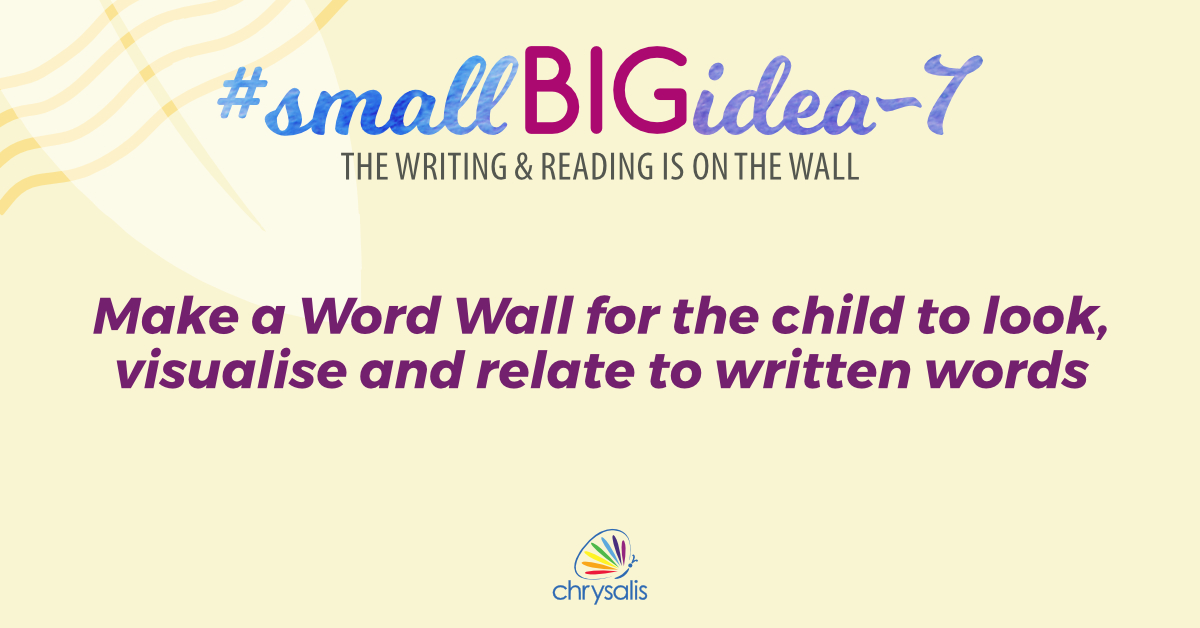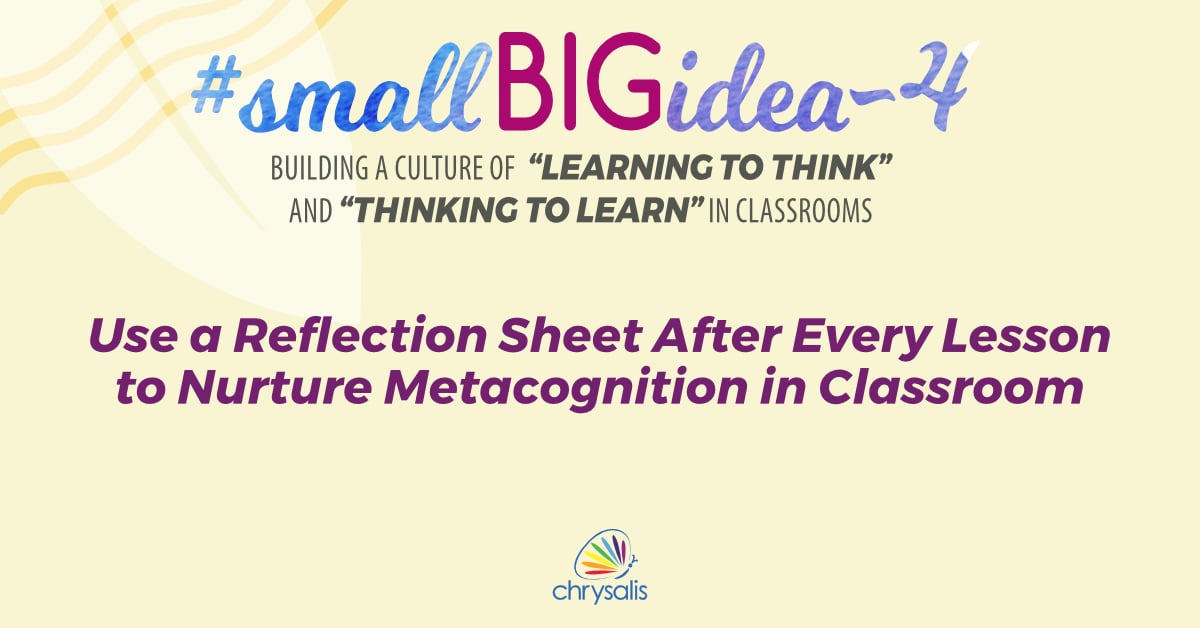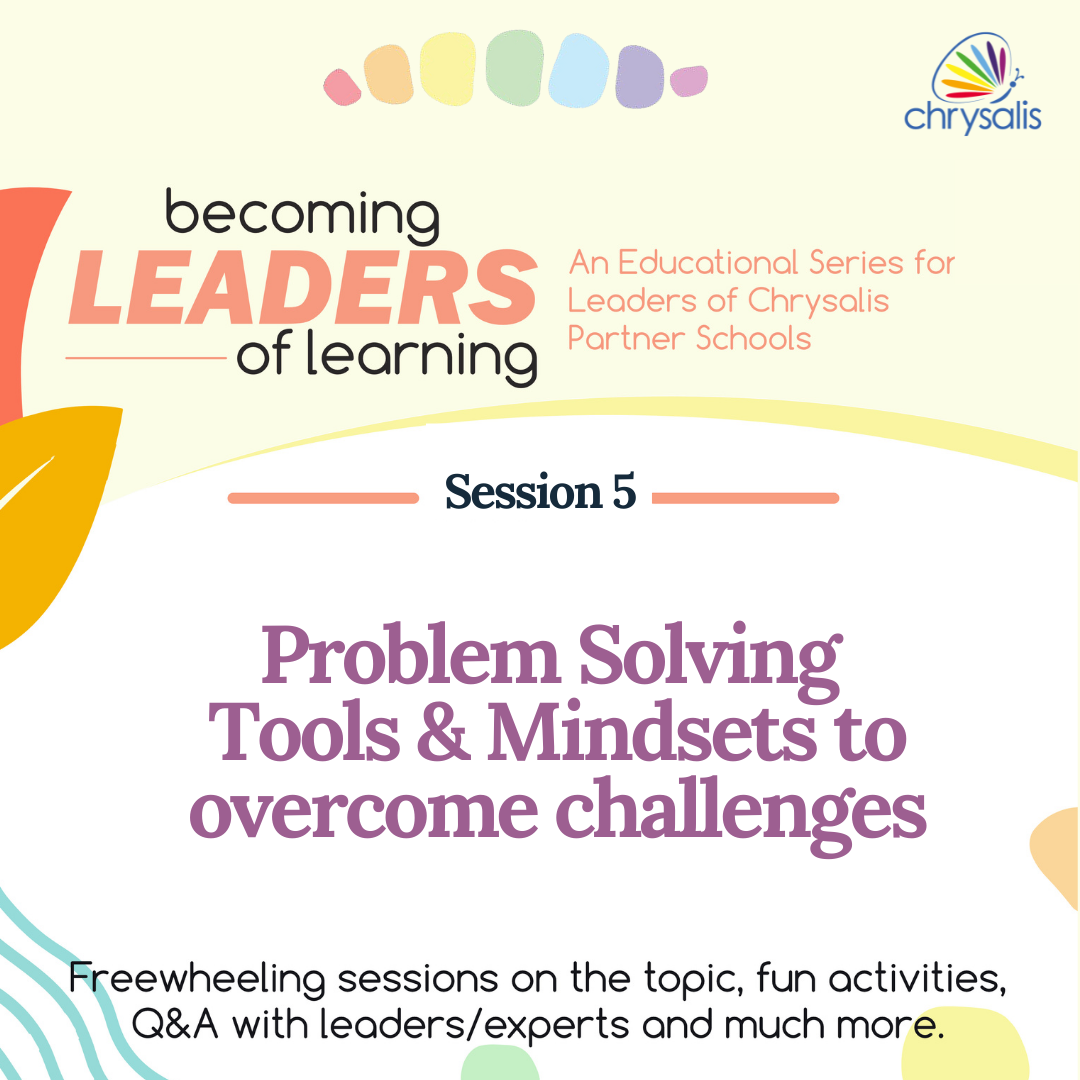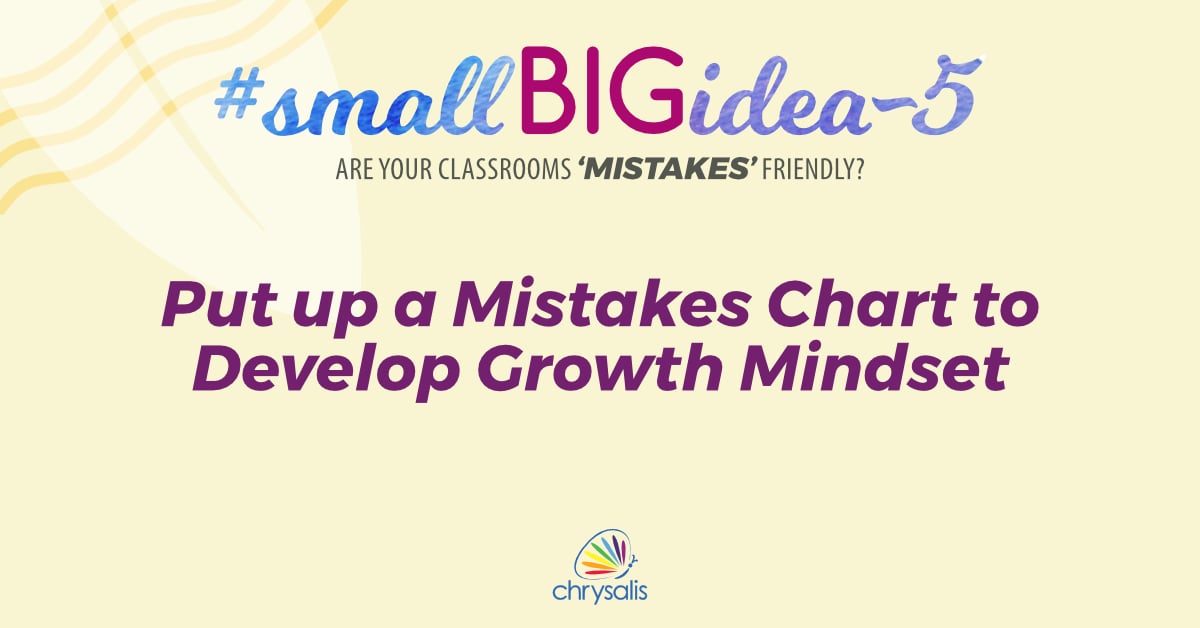
Growth mindset is the belief that intelligence is not static but dynamic. It can be grown and developed anytime. A key step in this direction is to understand that mistakes are a fundamental part of the learning process. And believing that human brain actually grows when challenged with problems and mistakes.
A classroom becomes a safe space when mistakes are valued rather than reprimanded. When we tell them “Mistakes will happen when you learn. It is your mistakes that help me understand how you learn.”, it is then that true learning happens. Mistakes is how the brain grows. This is how connections between neurons are established. Every educator needs to find a way to create an environment where the child is able to openly and fearlessly discuss mistakes in class.
However, when facing a class of 30 children, it becomes extremely difficult as a teacher to make sure each of them develops a healthy mindset towards learning. A mindset that will give them the strength and courage to face whatever life throws at them. Be it in their professional or personal life.
Here's how you can celebrate mistakes in your classroom.
Presenting...#smallBIGidea - 5
PUT UP A MISTAKES CHART TO DEVELOP GROWTH MINDSET IN EVERY CHILD
| S.NO | WHAT CAN YOU DO: |
| 1 | Put up a chart (like the one below). Call it “Mistakes Chart”. |
| 2 | Remember to put it at eye level of a child so they can use it easily. |
| 3 | After every lesson, encourage the children to write down “what did not go well” for them. And what they would like to do instead |
| 4 | Encourage them to talk about it...and let the teacher support them in finding their way out of it. |
Slowly, but steadily, the classroom becomes a learning space where every child feels emotionally safe to explore, make mistakes, reflect on mistakes and progress in their understanding of the world around and within.
CLICK ON THE IMAGE BELOW TO DOWNLOAD AND PRINT IT
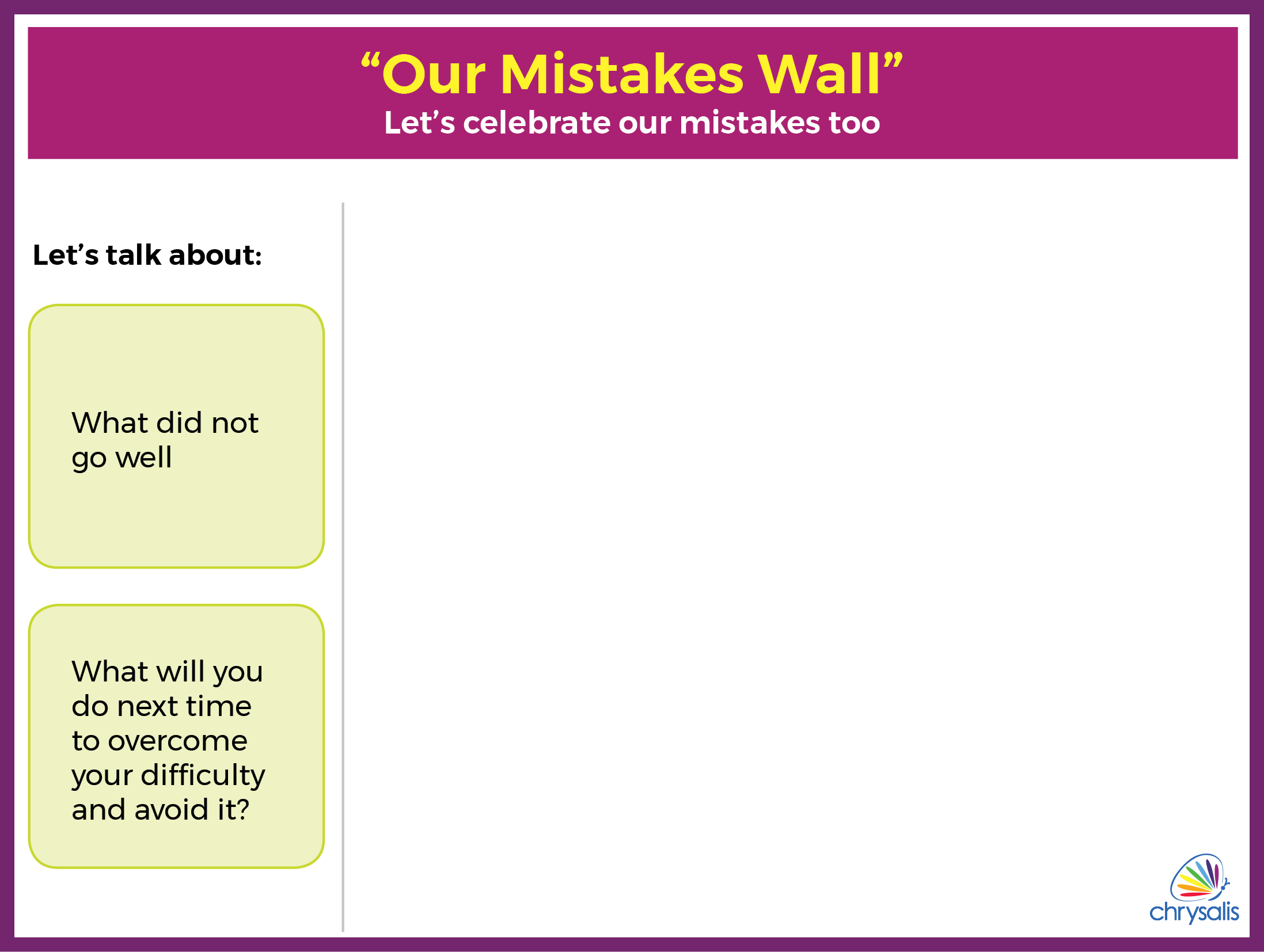
Pedagogic “Why” for this #SmallBIGidea
In a study done on the impact of “mistakes friendly” or “mistakes unfriendly” environments on children, it was found that when children perceived their classroom as mistakes friendly – above and beyond other aspects of their classrooms environment – they increased their effort in their work.*
• Celebrate mistakes: Mistakes is how the brain grows. This is how connections between the neurons are established. And learning happens as a result of this. Find a way to create an environment where the child is able to openly, fearlessly discuss mistakes in class. And when you appreciate the effort a child took to reach the answer, it boosts his/her confidence to boldly try new approaches to solving a problem.
• Reflect on mistakes: While it is important say “mistakes are important. That’s how you learn”, it is equally critical that we know which mistakes to learn from. So, an avenue to reflect on and discuss the mistakes or errors made during class would be a good step forward.
• Role-modeling: Encourage the teacher to admit and openly talk about his/her mistakes (small or big). This shows the children that mistakes are ok...and goes long way in creating an emotionally safe space for them.
Supporting research papers:
• *Steuer, G., Rosentritt-Brunn, G., & Dresel, M. (2013). Dealing with errors in mathematics classrooms: Structure and relevance of perceived error climate. Contemporary Educational Psychology, 38(3), 196-210.
• Moser, J. S., Schroder, H. S., Heeter, C., Moran, T. P., & Lee, Y. H. (2011). Mind Your Errors Evidence for a Neural Mechanism Linking Growth Mind-Set to Adaptive Posterror Adjustments. Psychological Science, 0956797611419520.
• https://www.youcubed.org/evidence/mistakes-grow-brain/
• https://dana.org/News/Details.aspx?id=43246
• https://neurosciencenews.com/mistakes-neural-networks-3235/
What are #smallBIGideas?
Presenting, some #SmallBigIdeas that can transform Formative Education in your schools. They are seemingly small but definitely impactful. Because, all you would need is an open mind and a willing heart.
What: One #smallBIGidea a week - just 1-minute reading time.
How: #smallBIGidea sent to your email ID with link to a one-page document that explains the pedagogy and the steps to implement it.
It is these simple ideas that can go on to bring a radical transformation. In your school. For the child.



